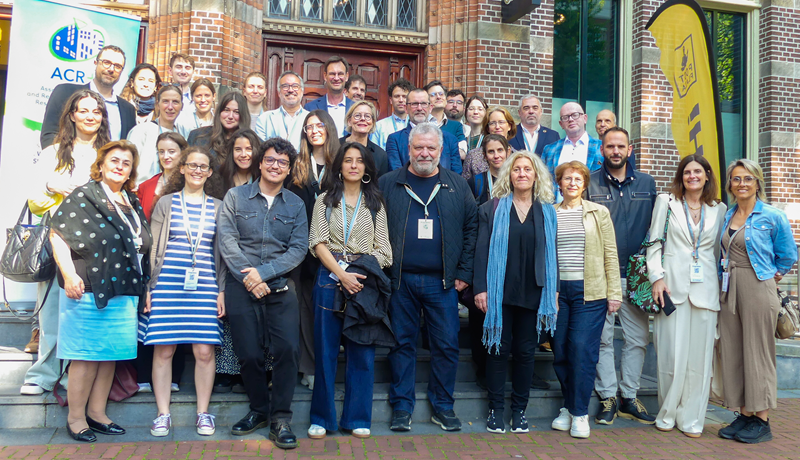News
ACR+ members renew their commitment to accelerate the transition to a collaborative circular economy
Leeuwarden, The Netherlands – ACR+ members from across Europe gathered in Leeuwarden to reaffirm their shared commitment to accelerating the shift toward a collaborative circular economy. Coinciding with the Circular Summit Fryslân 2025, the annual General Assembly served as a springboard for exchanging best practices, shaping policy input for the forthcoming EU Circular Economy Act, and spotlighting local and regional innovation as key drivers of systemic change.

Coming from all over Europe, ACR+ members converged in Leeuwarden on 11 June for their annual General Assembly, hosted by ACR+ member Provincie Fryslân. The event coincided with the Circular Summit Fryslân 2025, creating a dynamic space for knowledge-sharing and collaboration toward one common goal: emphasizing the crucial role for regions and cities in accelerating the transition to a circular economy with lasting benefits for the environment and public well-being.
Over three days, representatives from local and regional authorities and their partners exchanged ideas, insights, and best practices. Central to their discussions were strategies for enhancing circularity across the European Union, grounded in practical experience and regional innovation.
A starting point in this dialogue was the successful initiatives implemented by the conference’s host, Provincie Fryslân, working for over a decade towards a clean, healthy society. Fieldtrips took participants through both urban and rural parts of Fryslân to meet with initiatives – both public and private – aiming towards a regenerative future in fields like water innovation, nature restoration, circular construction, material reuse, inclusive work and education.
Architect Floris Alkemade delivered a keynote address that inspired attendees to take renewed action. In response, ACR+ members reaffirmed their commitment to advance sustainable material resource use and to embrace their responsibility to drive forward policies reflecting the priorities and needs of local communities, keeping as a guiding thread the idea of sufficiency. During the General Assembly, members also began shaping their collective input into the forthcoming EU Circular Economy Act, identifying top priorities such as extended producer responsibility (EPR) schemes and circular public procurement. Insights will be formalised in an official ACR+ position paper to be released in September 2025. The network’s work across its five thematic areas, alongside project outcomes and members’ concrete examples, will form the basis of its recommendations.
“Cities and regions are central to implementing EU legislation and policy. They spearhead innovation and foster territorial cohesion, as successful examples implemented by our members demonstrate. From our experience at local level, we know which measures are effective and what needs improvement. We want to share this knowledge to support the EU reach its decarbonisation target and secure its resilience.”
Francoise Bonnet, ACR+ General Secretary
Expectations and proposals for the future Circular Economy Act were also central to the discussion of seven parallels sessions held during the Circular Summit Fryslân 2025. Confronting their experiences and local situations, participants questioned the current approach to consumption and production but also offered suggestions on how to move forward. These include among others:
- Securing flexible and easy to use public procurement framework. Some good practices, shared during the conference and/or available through the C-PRONE platform, provide inspiring examples.
- Ensuring that cities and regions play a vital role in research, innovation and market uptake. This can be achieved by fostering strong research and innovation (R&I) networks at the local and regional levels and supporting initiatives speeding up the transition to a greener and more resilient economy like the regional innovation valleys.
- Securing that all EU waste management targets are reached in due time at regional and local levels by facilitating good practices and knowledge exchange.
- Promoting circular solutions in the built environment using bio-based materials, delivering positive impact on a large scale.
- Promoting circular solutions in water and food sector as key enablers for the circular economy transition.
- Providing reliable indicators that allow local and regional authorities to monitor and evaluate their circularity strategies and actions.
The Circular Summit Fryslân 2025 concluded with a conversation between Evert Jan van Nijen, Director of Circulair Friesland, and Iain Gulland, ACR+ President in which they declared that regions and cities continue to implement the circular economy with a long-term commitment. The day then closed with the European Week for Waste Reduction highlighting the most inspirational actions of its 2024 edition during an awards ceremony.









